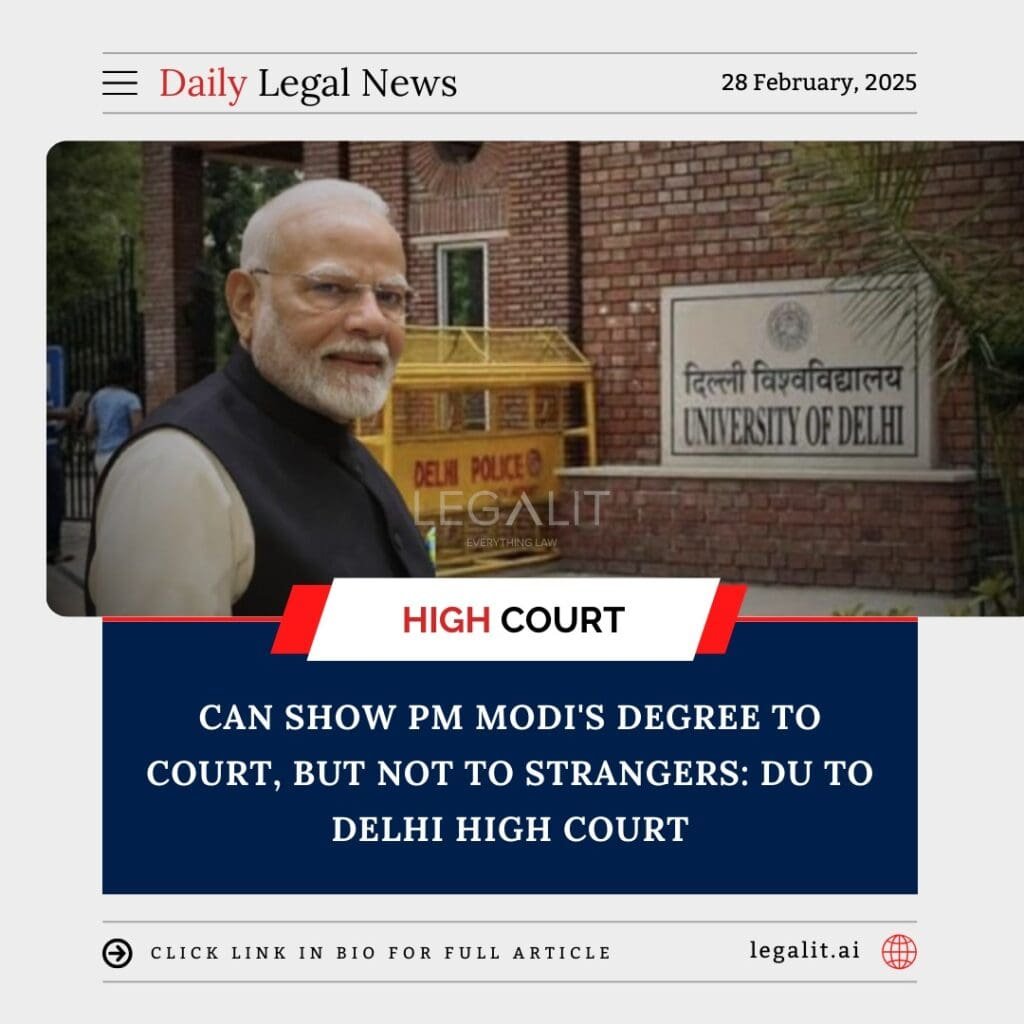
Background
Delhi University (DU) informed the Delhi High Court that it is willing to present Prime Minister Narendra Modi’s degree certificates to the court but not to individuals who request them without valid reasons. This response came in a case concerning the public disclosure of the Prime Minister’s educational qualifications.
The petition sought access to Modi’s degree certificates under the Right to Information (RTI) Act. The petitioner argued that as a public figure, the Prime Minister’s educational qualifications should be transparent and accessible to the public. However, DU opposed this demand, asserting that degree records are confidential and cannot be shared with individuals without proper legal grounds.
Court’s Rationale
The Delhi High Court considered DU’s argument and noted key points in its reasoning:
- Privacy and Confidentiality of Academic Records
- DU argued that academic records are personal information and cannot be disclosed to third parties without the individual’s consent.
- The university maintained that degree certificates of any student, including public officials, should not be treated as public documents for unrestricted access.
- RTI Limitations on Personal Information
- The university cited provisions of the RTI Act that exempt personal information from disclosure unless it involves a larger public interest.
- It stated that revealing an individual’s degree details without their consent would violate privacy norms.
- Availability for Judicial Scrutiny
- While opposing general public access, DU clarified that it was willing to present the degree certificates to the court if required for legal proceedings.
- The university assured the court of its compliance with legal directives but objected to demands from individuals without judicial authorization.
Existing Measures
- The Supreme Court has previously ruled on the balance between transparency and privacy in RTI cases, emphasizing that personal records cannot be disclosed unless justified by public interest.
- The Election Commission requires candidates to submit their educational qualifications in affidavits, but these details are not automatically subject to public access beyond election procedures.
- Universities maintain policies that restrict third-party access to student records unless legally mandated.
Conclusion
The Delhi High Court is expected to decide on the matter considering privacy laws, RTI provisions, and the need for transparency in public office. The case underscores the broader debate on balancing public interest with individual privacy, particularly concerning high-profile figures.